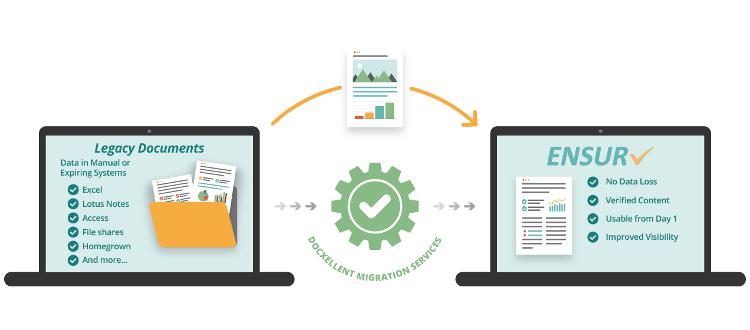-png.png)
Artificial Intelligence (AI) and machine learning are the newest technologies revolutionizing the medical device industry. These advances have the potential to transform the way medical device companies gather important insights from the vast amount of data produced during the delivery of healthcare. Medical device manufacturers have begun using this technology to modernize their products to better assist health care providers and advance patient care in the coming years. But with this revolutionary tech comes an important question: how will the FDA regulate it? In this article, we will explain exactly what AI is, the importance of these new technologies in terms of the medical device industry, and how the FDA intends to govern them as their scopes broaden.
What is AI Technology and Machine Learning?
The FDA defines Artificial Intelligence as the science and engineering of making intelligent machines, specifically intelligent computer programs. This technology can use different techniques, including models based on statistical analysis of data, expert systems that primarily rely on if-then statements, and machine learning. In the same vein, machine learning is an artificial intelligence technique that can be used to design and train software algorithms to learn from and act on gathered data.
Both artificial intelligence and machine learning technologies differ from other software when used as a medical device simply because they are able to adapt their own performance to consistently improve the way health care is given to patients. The International Medical Device Regulators Forum (IMDRF) defines medical device software as: “software intended to be used for one or more medical purposes that perform these purposes without being part of a hardware medical device.” And under that definition, the FDA considers medical purpose as those purposes that are intended to treat, diagnose, cure, mitigate, or prevent disease or other conditions.
How Does AI Help Medical Device Companies?
The medical device industry always seeks to integrate accuracy with automation whenever they can; and their early adoption of AI technology is no different. The current focus on making medical devices more reliable and accurate is generating a growing interest in finding more and more ways to integrate machine learning technology.
The adoption of AI technology is predicted to accomplish many things in terms of increased efficiency for the medical device and healthcare industry, including:
- Reducing the diagnostic workload for physicians
- Bringing down the rates of misdiagnosis
- Allowing patients to better monitor their vitals and have the information delivered immediately to their doctors, eliminating the need to visit a clinic or hospital.
- Helping to bring down overhead costs and reduce the load on healthcare facilities
In addition, AI will soon allow automated surgery to become a common reality. AI robots performing day-to-day surgeries are not only more accurate and reduce the risk of human error, they are also more efficient. And even beyond conducting the surgery itself, AI can help augment the awareness capabilities and dexterity of surgeons through the use of machine learning algorithms. Surgeons will be able to make use of such systems to make more well-informed decisions. And, AI-based surgical systems will reduce surgical variations, eliminate inefficiencies and improve the patient outcomes.
How Does the FDA Plan to Regulate This Technology?
Because AI and machine learning have unique features that go beyond any previously regulated medical device technology, the FDA recognized the need to create a set of guidelines that enable all AI users to streamline safe innovation and protect patient wellbeing. So, the FDA has been reviewing their current regulatory context for the product lifecycle of these new technologies in order to do two things:
- Ensure the software is both safe and effective
- Allow for changes to healthcare delivery based on the examination of new data that AI and machine learning make possible
The FDA’s original medical device regulation method was not intended for AI technology and machine learning. And under the FDA’s current approach to software modifications, they anticipate that many of these AI software updates may need a premarket review. A premarket review’s intention is to screen new technologies and weigh the various risks they place to stakeholders and healthcare patients.
The FDA released a paper in April of 2019 that discussed exactly what these premarket screenings will look like: “[The FDA] will leverage practices from our current premarket programs and rely on IMDRF’s risk categorization principles, the FDA’s benefit-risk framework, risk management principles described in the software modifications guidance, and the organization-based total product lifecycle approach.” Taking it a step further, the FDA expects full transparency from the companies manufacturing these AI medical devices as well as real-world performance monitoring. Only with these commitments, along with periodic updates to the FDA on any implemented changes, will manufacturers be legally allowed to produce AI technology for the medical device industry.
This proposed regulatory plan would allow both manufacturers and the FDA to evaluate and monitor AI products from pre-market development through post-market performance. In this way, the beneficial advancement power of artificial intelligence and machine learning software can be accepted by the FDA’s regulatory oversight, all while assuring patient safety.
In terms of handling the AI wave of the future, transitioning to a document management system (DMS) is a great first step. DMS systems are incredibly useful tools when capturing and analyzing mass amounts of data. Imagine a system that could help you identify the root causes of your company’s deviations, or inefficiencies in your workflow, and distribute necessary changes across your entire production system to address them. DocXellent’s ENSUR Document Management Software is fully equipped to help your medical device company tackle the world of AI seamlessly and maintain FDA compliance. Contact us today to learn more.




























